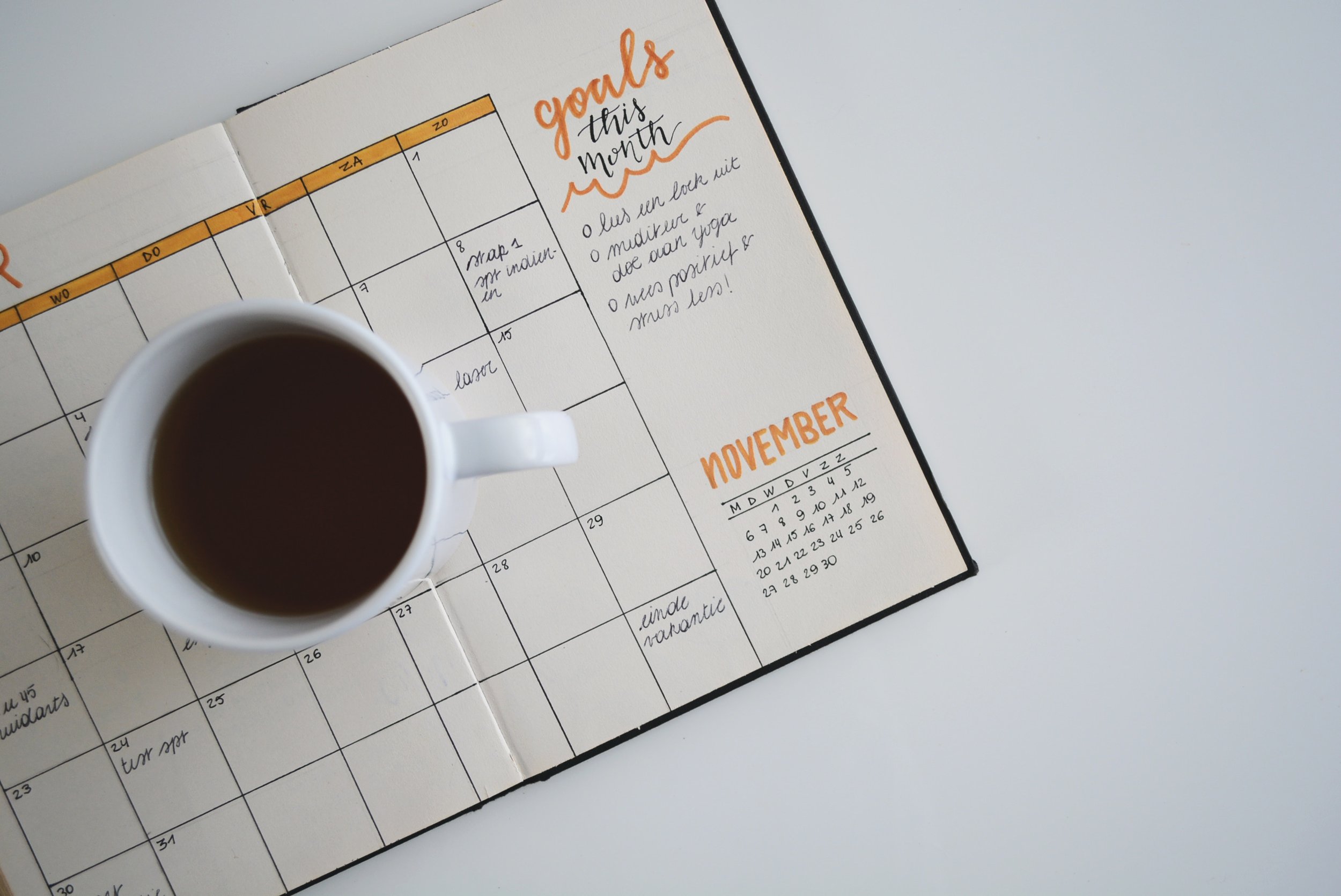In this second part of of our two-blog series inspired by the teachings of Marie Kondo, we will apply the KonMari method through simple activities designed to help you better tidy up your relationships. We hope this blog will inspire the courage and intention you need in order to facilitate nourishing relationships into your life.
Tidying Up (Part I) - Tidying Up Your Life
12 Ways to Start Being Your Own Best Friend
When our life circumstances change, our friends often change with them. Cross-country moves introduce us to new social groups; coupledom expands our inner circles; and parenthood fosters additional bonds. Gone are the days when our closest confidants were just a short drive away. Now, get-togethers are planned months in advance and frequent flier miles are racked up with regularity.
But what about being a good friend to ourselves? We put heart and soul into our sisterhoods (and brotherhoods!) but can forget that it starts with being kind to the fresh face we greet in the mirror each morning.
Self-compassion or treating yourself with the same kindness as you would a close friend, can radically change the way you relate to yourself. Check out these 12 tips for doling out some serious self-love.
Why Secure-Functioning Matters in Partnerships
What does it mean to be in a secure-functioning relationship? And why should it matter to me? Secure-functioning relationships allow us to be the best we are individually. It does not mean that you will lose your identity or freedom. In fact, you will have more, since trust is a guarantee you two make. Your relationship will become a place of support and love. As well as a place to call home + restore life-energy. Are you in a secure functioning relationship? IF not, good news is you two CAN BE!
You’re a Black Unicorn, Not a Black Sheep
Have you ever labeled yourself as the “black sheep” or “scapegoat” of your family, your workplace, or somewhere else where you’re “supposed” to naturally belong?
In my office, so many of my clients use this phrase to describe themselves. (And, I admit, I’ve used it myself to talk about whether I felt I fit into various groups too.) There’s something I find when we look closer at how and why we use these terms, however, and it has a lot to do with shame and how we feel we’re being judged by other people.
In my office, I often ask: What if you weren’t a black sheep? What if you were a black unicorn? Or a yellow, blue, or rainbow unicorn?
What Your Upbringing Says About Who You Are in Bed
Esther Perel asks.
As a Relationship Therapist - I ask.
📌Why is it that many women don’t seem to know what they want?
📌Where does the sense of being disconnected from your own body stem from?
📌How can it be so hard to talk about sex with our partners?
As Perel explains, much of our adult sexuality, our current desires, the way we relate to others, how we perceive our self-worth—is the product of the way we were raised and the environment in which our sexuality developed.
Q&A with Esther Perel:
Q
You’ve said that if you know how someone was raised, you can tell how they will be as a lover. Can you explain?
A
Consider a paradigm we’ve always known in modern psychology: Tell me how you are loved, and I’ll have a good idea of what may be some of your issues, your concerns, your worries, your aspirations, and how you love.
But this paradigm never got translated into: Tell me how you were loved and I will tell you how you MAKE love. How your emotional history is inscribed in the physicality of sex. How your body speaks a certain emotional biography.
For example, the question I often ask people is: How did you learn to love, and with whom? Were you allowed to want? Were you allowed to have needs growing up—or were you told, “What do you need that for?” Were you allowed to thrive? Were you allowed to experience pleasure—or was pleasure just a break between work sessions, a reward after a lot of effort? Were you allowed to cry—and were you allowed to cry out loud, or did you have to hide it? Were you allowed to laugh—out loud? Did you feel protected as a child by those who needed to protect you—or did you flee for protection? Did the people who were supposed to take care of you do so—or did you have to take care of your caregivers, becoming the parentified child?
Baltimore Area Adult Women:
Does post this resonate with you? Are you interested in exploring your own adult sexuality and how it shows up for you in your relationship?
If so, reach out - you don’t need to navigate these feelings & ideas - ALONE.
Susan works with Type A’s ---> Creatives as they balance schedules, stress, and the modern challenges within coupleship.
Why I Cheated: Because I Needed to Hide
What goes through someone’s mind after they cheat? A million different things.
The following letter is a fictitious note written by a regretful partner trying to save a relationship after infidelity. The letter may be made up but the feelings and worries it describes and my response (that’s part two of this post!) are very real.
-- Susan Stork, LCPC, NCC
Photo by Konstantin Planinski on Unsplash
Season of Feelings
Susan Stork, LCPC, NCC is a Relationship Therapist and founder Space Between Counseling Services in Baltimore City, Maryland.
Susan works with Type A’s ---> Creatives as they balance schedules, stress, and the modern challenges of coupleship.
Specializing in counseling for individuals and couples using Stan Tatkin’s PACT approach, Susan helps you move through the muck of life and into a life of purpose and connection.
It’s that time of year again. Holidays are in clear sight in all areas of life.
I get that this time of year is hard on many people.
Due to traumatic events, difficult family and/or events linked to this season - many people feel less than { Deep Gratitude, Joyful & Happy } in the days between November --> January.
#Holidays are a rough time of year for many people due to one reason or another.
So, what can we do it about it? Jaime Stacks @jamielstacks has a one formula to stop this “crazy train” that speeds through the holidays for some of us.
It starts with setting your intentions.
Using intentions {PLUS} the therapeutic idea of "Re-Storying" we can alter our current experiences in this “NOW” space of the season compared to the “THEN” space of previous sadness, harm and voids of previous seasons.
••••••••••••••••••••••••••••••••••••••••••••••••••••••••••••••••••
{F I V E} Mindfulness tips to jump-start your Holiday Self-Care}
••••••••••••••••••••••••••••••••••••••••••••••••••••••••••••••••••
[ONE] Set intentions every morning
[TWO] Take 15-30 minutes everyday for yourself
[THREE] Take 15-30 minutes everyday for loved ones -- family + friends and mentors
[FOUR] Simplify, Simplify, Simplify
[FIVE] Gratitude Journal
•••
Photo by Estée Janssens on @Unsplash
•••
( Together )
“We can do hard things.”
•••••••••••••••••••••••••••••••••••••••••••••••••
This is a saying that I’ve been saying + hearing lately - in my head, in my sessions, as a business owner, and as a partner + parent.
Understanding that we only have so much control of certain situations but we always have control of our commitments, our responses, our pause and our compassion for ourselves + others.
Being aware of feelings & expressing them PROACTIVELY - helps when things get "hard". Acknowledging that life can be scary, raw, over-whelming & unpredictable --- helps us to realize that it is normal, and that WE don't always have control when "hard things" enter our days. However, these feeling are a {S I G N} that something is amiss.
If you OFTEN use fight (judgement + aggression) , freeze (indecision + prolonged delay) or flee (avoidance) when {hard things} come your way - you might need some more support?
🖊Writing feelings out (journaling) and/or talking to others might help to identify difficult feelings.
📌Both help me personally to move forward with what I needed to do and not let anxious thoughts take over when "hard things" hit the fan.
🔸In addition, reaching out for help shares the load. I often reach out to my husband + colleagues + friends and ask for insight when "hard things" come my way.
What do you do to confront "hard things"❓
Who are your supports? ❓
Where do you go to reflect + recharge + reset❓
If you find that you often confront "hard things" with fight (aggression + judgement) freeze (prolonged delay + indecision) or flee (avoidance) - it might help to seek more support(s) to help process your feelings and responses to "hard things."
{HARD T H I N G S} do not have to be a way of life - you can share the load, redirect, and pivot when necessary.















